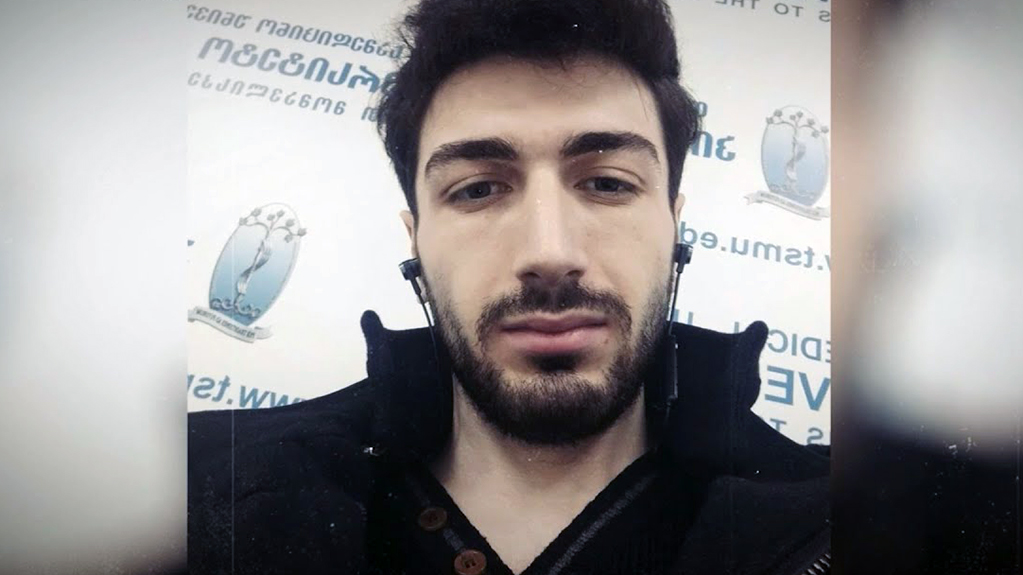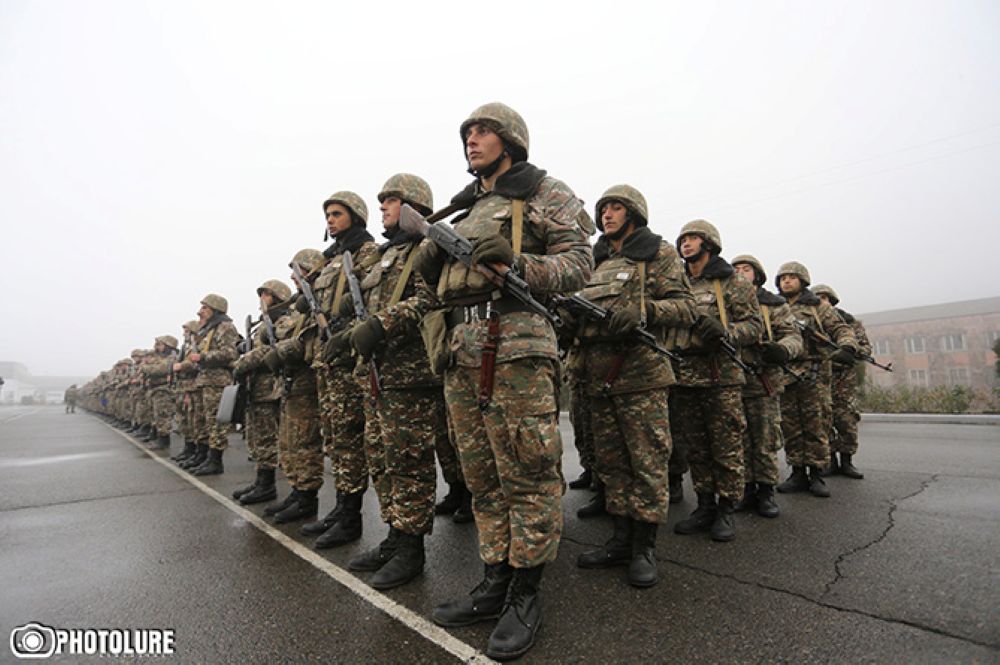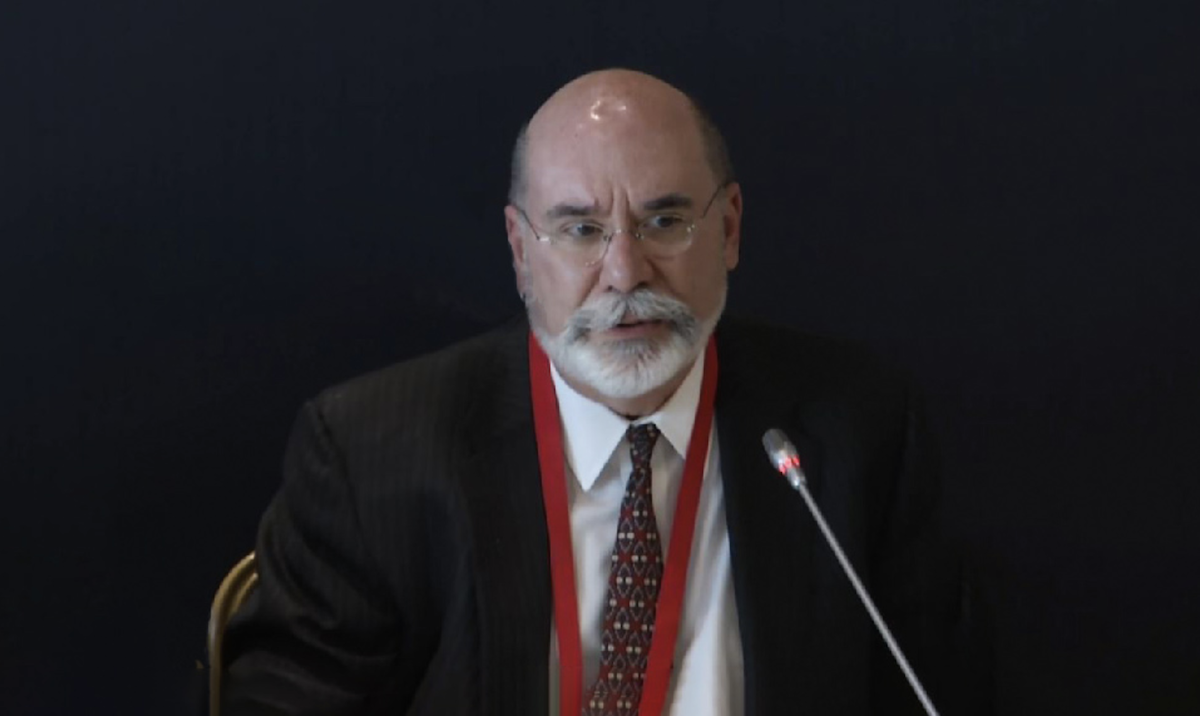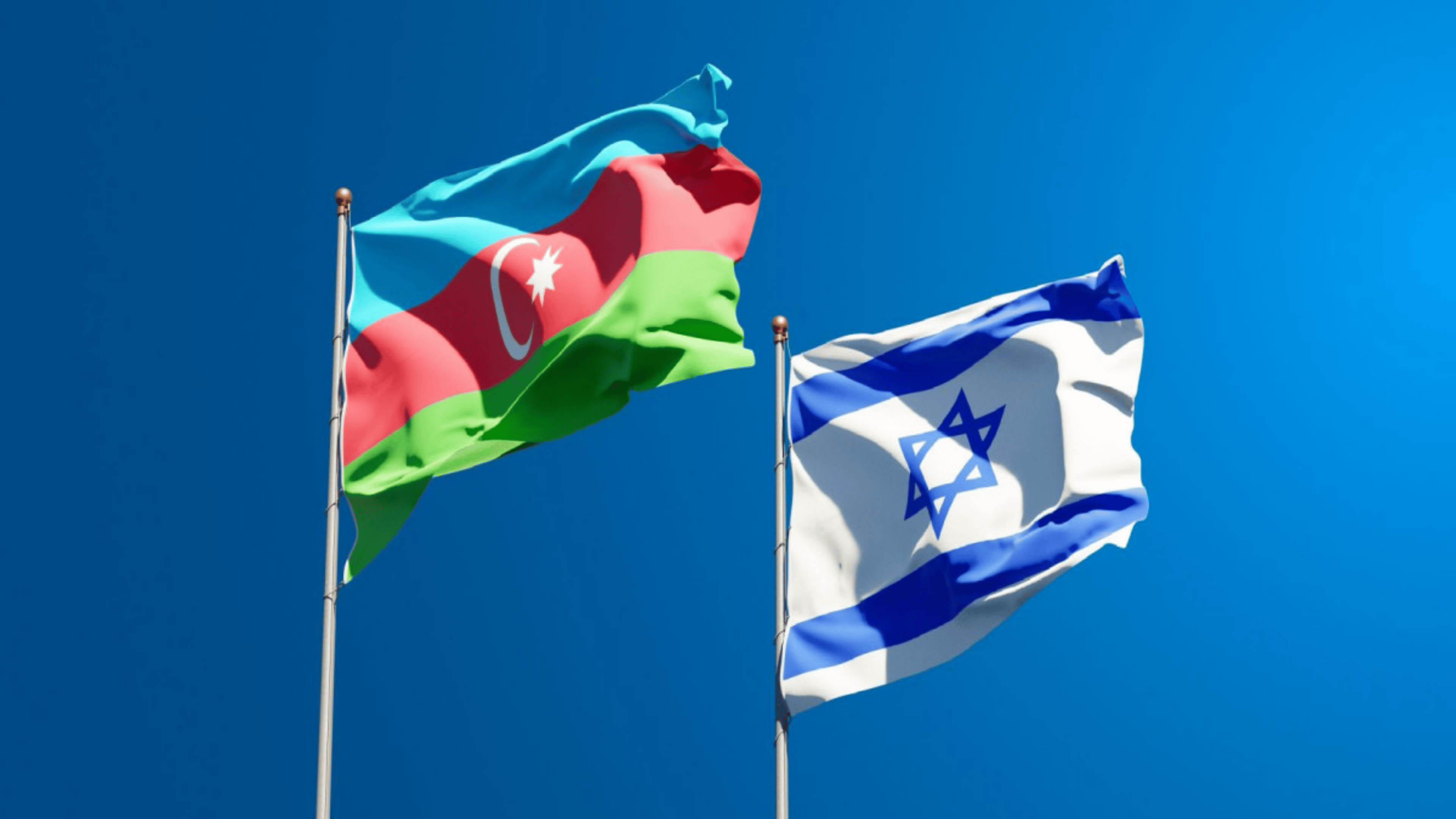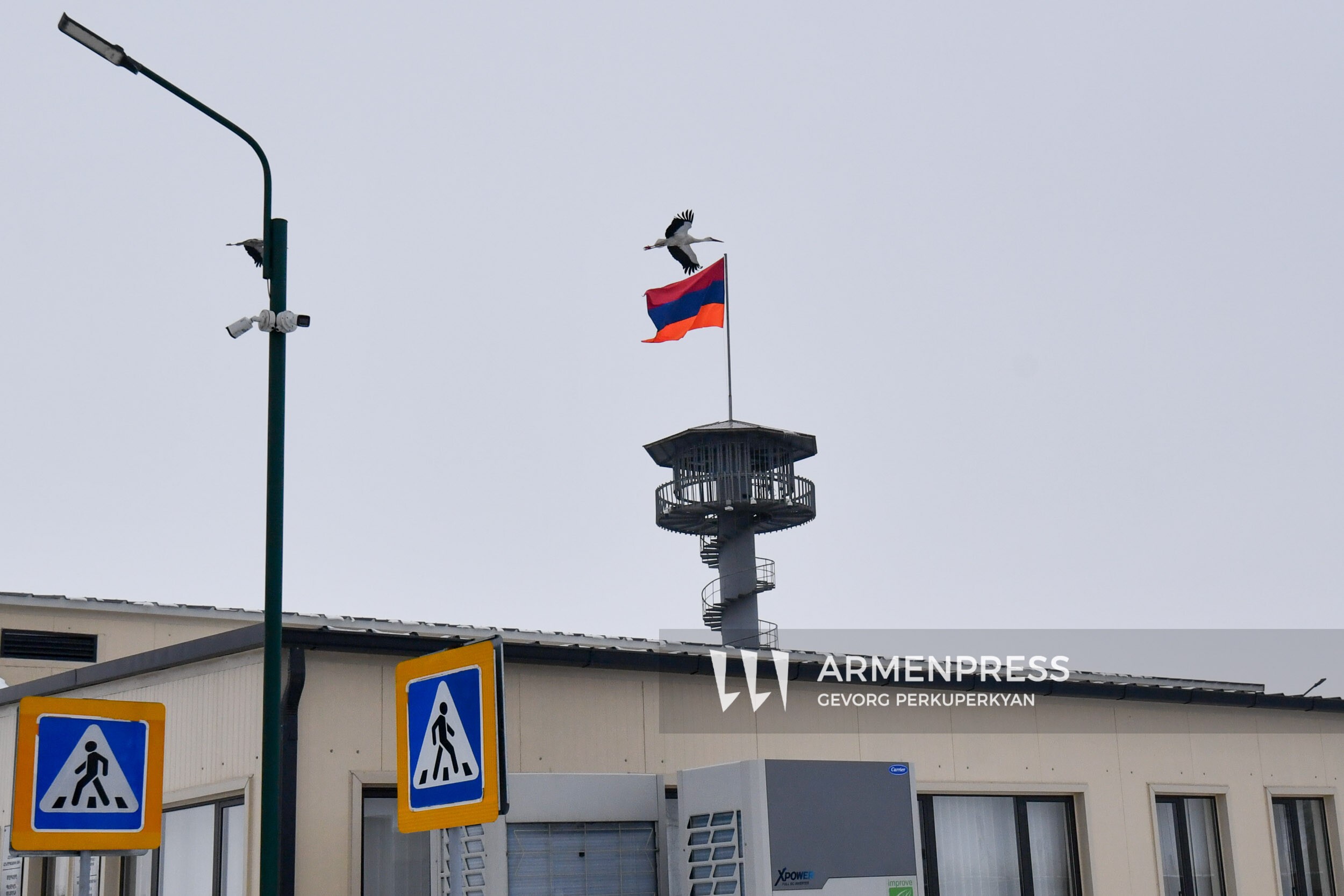Ukraine expels Russian Orthodox Church; priests and monks refuse to leave
Kiev-Pechersk Lavra conflict
Conflict is escalating in one of the largest monasteries of the Orthodox world, the Kiev-Pechersk Lavra in Kyiv. Hundreds of clergymen and monks, accused of ties with Moscow, have been officially expelled but refuse to leave.
The deadline for them to leave the Lavra was March 29. On April 1 the governor of the Kiev-Pechersk Lavra, Metropolitan Pavel, was charged under two criminal articles — cooperation with the Russian Federation and inciting religious hatred.
- How Ukrainian refugees are living in different countries
- One year since the beginning of the war in Ukraine
“It has been established that Pavel Lebed, in his public speeches, repeatedly insulted the religious feelings of Ukrainians, humiliated the views of believers of other faiths and tried to form hostile attitudes towards them, and made statements justifying or denying the actions of the aggressor country. This was also confirmed by a forensic linguistic examination initiated by the Security Service,” the Ukrainian security service said in a statement.
The Metropolitan was summoned for interrogation, his place of residence in the monastery cordoned off by the police, and a search is underway.
Crowds of supporters have been protesting since April 29, saying they will not allow the expulsion of priests and monks.
The Autocephalous Orthodox Church of Ukraine and the Ukrainian Orthodox Church (former part of the Moscow Patriarchate): the essence of the confrontation
Church issues in Ukraine are connected with the decision adopted by the Patriarchate of Constantinople in January 2019 to recognize the autocephalous Orthodox Church of Ukraine (UOC). Until that time, the only legal Orthodox church structure on the territory of Ukraine was the Ukrainian Orthodox Church of the Moscow Patriarchate.
The Ukrainian Church officially regained its independence for the first time since 1686, when the Kiev Metropolis, being part of the Ecumenical Patriarchate, was subordinate to the Russian Orthodox Church.
However, the Russian Orthodox Church not only did not recognize the decision of the Patriarchate of Constantinople, but declared it heretical. Also, the Orthodox Churches of Georgia and Serbia did not recognize the autocephalous Orthodox Church of Ukraine.
The confrontation between the churches has continued since that time, and there has also been a painful split among the faithful. The dispute extends to property rights and ownership of church buildings and property.
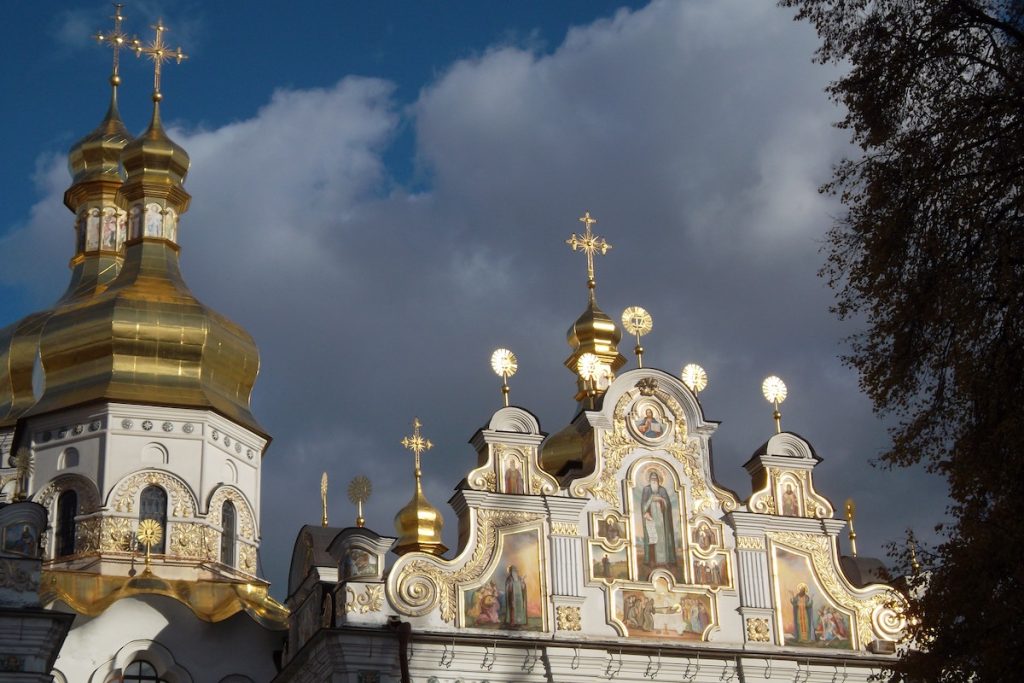
The Kiev Pechersk Lavra is a huge 11th century monastery overlooking the Dnieper River, a UNESCO World Heritage Site. Under an agreement with the Ukrainian authorities, for decades the Lavra was in the full and free use of the Ukrainian Orthodox Church (UOC), which has always been part of the Moscow Patriarchate.
After Russia’s military invasion of Ukraine, the UOC announced its separation from the Russian church. But Ukrainian officials suggest that some of the higher clergy have continued to maintain ties with the church in Moscow.
The Lavra has been repeatedly searched. The Ukrainian security service claimed to have found pro-Russian literature in the Lavra seminary and parochial schools used to propagate the “Russian world,” as well as large sums of money.
Almost 60 criminal cases were launched against the clergy of the UOC, with the courts delivering seven convictions. The Ukrainian citizenship of thirteen priests has been suspended.
At the beginning of 2023, a significant event took place in the history of the Kiev-Pechersk Lavra. Its main Assumption Cathedral was transferred to the independent Orthodox Church of Ukraine. On January 7, its priests held a service in the cathedral for the first time.
President Zelensky said “there will never be anything non-Ukrainian here again.”
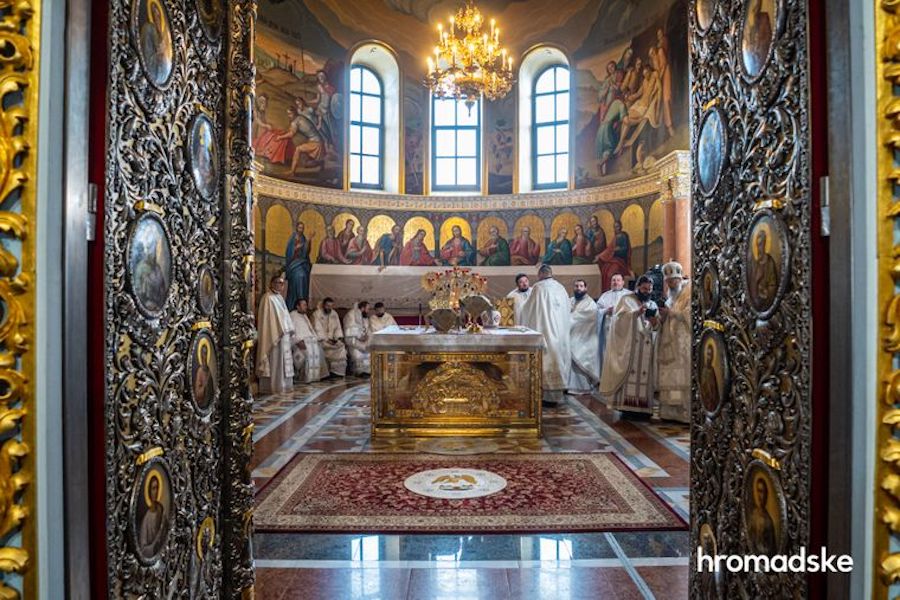
The next decisive step was taken in March 2023. The complex of ancient churches and caves has the status of a national reserve in Ukraine and belongs to the state. The Ukrainian government said it found numerous violations of the complex’s lease agreement and decided to complete it completely.
The deadline for the eviction of all those associated with the UOC (formerly the Moscow Patriarchate) was set on March 29.
However, the press service of the church said in response that “there are no legal grounds for expulsion.” “If the government makes us do it illegally, it’s called totalitarianism. We have a constitution and laws. We do not accept other methods,” Metropolitan Kliment, head of the press service of the UOC, told the BBC.
History and complex legal rights to the possession of the Kiev-Pechersk Lavra
The history and complex legal context of the unique heritage of the Orthodox world is discussed by the Ukrainian publication Zaborona.
The Kiev Pechersk Lavra was founded in 1051. During the Second World War the complex was seriously damaged, the buildings were restored in 1988, and since then they have been in use for worship.
Since that time, the Kiev-Pechersk Lavra has actually been in the use of today’s Ukrainian Orthodox Church of the Moscow Patriarchate. But the Lavra never belonged to it, and all activities were carried out on the basis of lease agreements concluded between the religious organization and the Ministry of Culture of Ukraine.
The Lavra consists of two parts: Upper and Lower. The upper includes museums, the National Historical Library, the Assumption Cathedral and the Refectory Church. The lower consists of temples, Lavra caves, a seminary, a theological academy and the official residence of the primate of the UOC-MP Metropolitan Onufry.
One of the agreements concerned the facilities of the Upper Lavra, Yevgenia Kravchuk, deputy chairman of the Verkhovna Rada Committee on Humanitarian Policy, explained to Zaborona:
“In the case of the Upper Lavra, it was written in the lease agreement between the reserve and the church that it [is valid] until January 1, 2023. The agreement was not extended by the state, and now not a single religious organization has the right to operate there without a special short-term permission for use.”
The situation is much more complicated in the Lower Lavra.
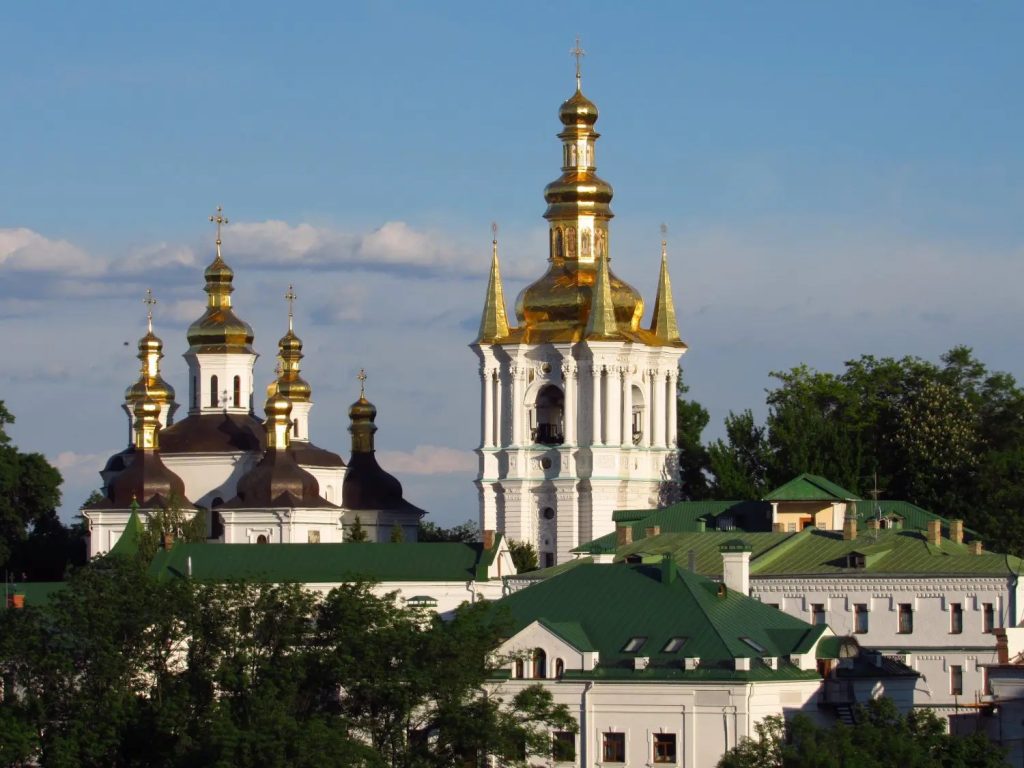
The Lower Lavra and the monastery that now operates there have actually been in use by the Moscow Patriarchate since the 1990s,” Kravchuk explains.
In 2013 an agreement was concluded with the UOC, that is, with the Moscow Patriarchate, on the lease of the Lavra, but it does not specify either the term or the fee — that is, the lease is indefinite and the religious organization pays nothing.
The Ukrainian authorities are checking the legitimacy of the agreement. “The lawyers noticed that the contract should contain at least some definition of the term. If it is indefinite, then it should be written: obtains indefinitely. But this is not in the contract,” Kravchuk said.
In 2017, on the air of the Ukrainian investigative journalism program Schemes, journalist Maxim Savchuk spoke in detail about illegal construction on the territory of the reserve and the Lower Lavra. These facts are now being studied by the Ministry of Culture for violations of the terms of the lease agreement by the UOC-MP.
Trump’s son and political supporters criticize Ukraine for meddling in religious affairs
The scandal surrounding the Lavra received a vociferous response from the son of Donald Trump, who posted on Twitter:
“Zelensky bans the Ukrainian Orthodox Church. His government raided Ukrainian Orthodox churches and arrested priests. That’s probably why he’s a Democratic superstar. It’s all about freedom, guys. Send him another $100,000,000,000 without accounting.”
Tucker Carlson, a well-known American presenter of the Republican FOX News channel, also criticized the current Ukrainian authorities: “Why don’t you applaud the person who banned the Christian denomination, the person who arrested the priests?”
“Of course, there is a danger that we will be criticized. Therefore everything must be done correctly and legally,” Yevgenia Kravchuk says.
This position was supported by the representative of the autocephalous Orthodox Church of Ukraine, Georgiy Kovalenko:
“This is a matter of the security of the Ukrainian state and the fact that some of its citizens are cooperating with the aggressor country. But everything must be done in a legal way, combining legal professionalism with religious studies professionalism. If this is done, our Western partners will have no questions.”












